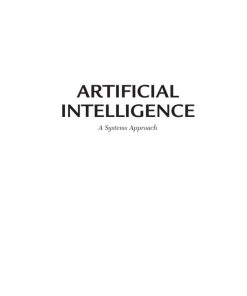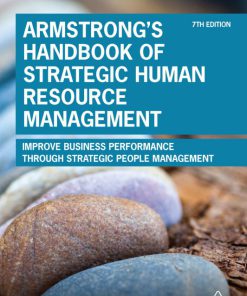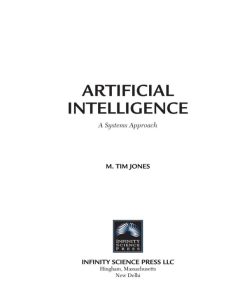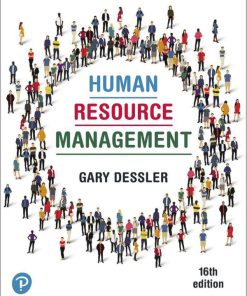Strategic Human Resource Management A Systems Approach 1st edition by Nigel Bassett Jones ISBN 1138641367 978-1138641365
$50.00 Original price was: $50.00.$25.00Current price is: $25.00.
Authors:Nigel Bassett-Jones , Series:Strategic Studies [155] , Author sort:Bassett-Jones, Nigel , Languages:Languages:eng , Published:Published:Apr 2023 , Publisher:Routledge , Comments:Comments:This innovative text applies a systems theory perspective to strategic human resource management, drawing particularly on the Viable Systems Model and soft systems methodology. This text will be suitable for upper-level undergraduate, postgraduate and MBA stdents of strategic HRM, HRM and strategic management.
Strategic Human Resource Management: A Systems Approach 1st edition by Nigel Bassett Jones – Ebook PDF Instant Download/Delivery. 1138641367 978-1138641365
Full download Strategic Human Resource Management: A Systems Approach 1st edition after payment

Product details:
ISBN 10: 1138641367
ISBN 13: 978-1138641365
Author: Nigel Bassett Jones
This innovative text applies a systems theory perspective to strategic human resource management, drawing particularly on the Viable System Model and soft systems methodology.
Readers are introduced to different ways of thinking about systems and shown how systems can interact, triggering changes in the competitive environment – and how HR systems can either facilitate or inhibit adaptation to these changes. Peppered with international examples throughout, this book considers key HR topics such as recruitment, reward, employment relations, culture, diversity and leadership, all through a systems lens. It shows how an understanding of system dynamics can help managers to recognise complexity, accept the inevitability of short-term systemic conflicts and anticipate the likely consequences.
This text will be suitable for upper-level undergraduate, postgraduate and MBA students of strategic HRM, HRM and strategic management. It will also be thought-provoking for HR professionals looking to embrace a strategic role in their organizations.
Strategic Human Resource Management: A Systems Approach 1st Table of contents:
1. Introduction to Strategic Human Resource Management
- 1.1 Defining Strategic Human Resource Management (SHRM)
- 1.2 The Evolution of Human Resource Management
- 1.3 The Systems Approach to HRM
- 1.4 The Role of HR in Organizational Success
- 1.5 Aligning HR Strategy with Business Strategy
2. Theoretical Foundations of Strategic HRM
- 2.1 Key Theories in Strategic HRM
- 2.2 The Resource-Based View (RBV) of HRM
- 2.3 The Behavioral Perspective in HRM
- 2.4 The Contingency Approach to HRM
- 2.5 The Systems Perspective in HRM
3. Strategic HR Planning and Organizational Design
- 3.1 The Importance of HR Planning in Strategic Management
- 3.2 Workforce Forecasting and Talent Management
- 3.3 Aligning Organizational Structure and HR Systems
- 3.4 HR’s Role in Organizational Design and Change
- 3.5 Building Flexible and Agile HR Systems
4. Recruitment, Selection, and Talent Acquisition
- 4.1 Strategic Approaches to Recruitment and Talent Acquisition
- 4.2 Employer Branding and Employee Value Proposition
- 4.3 Advanced Selection Techniques and Methods
- 4.4 Diversity and Inclusion in Recruitment Strategy
- 4.5 Integrating Recruitment with Organizational Needs
5. Training and Development as a Strategic Function
- 5.1 Aligning Employee Development with Organizational Goals
- 5.2 Designing Effective Training Programs
- 5.3 The Role of Leadership Development in Strategic HRM
- 5.4 Career Development and Succession Planning
- 5.5 Measuring the Impact of Training on Business Performance
6. Performance Management and Strategic Alignment
- 6.1 The Role of Performance Management in Strategy Execution
- 6.2 Designing Strategic Performance Appraisal Systems
- 6.3 Linking Employee Performance to Organizational Goals
- 6.4 Addressing Performance Gaps and Driving Accountability
- 6.5 Strategic Feedback and Continuous Improvement
7. Compensation and Rewards Strategy
- 7.1 Aligning Compensation with Business Strategy
- 7.2 Designing Pay Structures for Organizational Success
- 7.3 Performance-Based Compensation and Incentives
- 7.4 Employee Benefits as Part of Strategic HRM
- 7.5 Global Compensation Strategies in Multinational Organizations
8. Employee Relations and Organizational Culture
- 8.1 Building Positive Employee Relations
- 8.2 The Role of HR in Shaping Organizational Culture
- 8.3 Managing Conflict and Negotiation in the Workplace
- 8.4 Employee Engagement and Organizational Commitment
- 8.5 Fostering a Culture of Collaboration and Innovation
9. Strategic HRM and Technology
- 9.1 The Role of Technology in Strategic HRM
- 9.2 HR Information Systems (HRIS) and Data Analytics
- 9.3 Leveraging Technology for Talent Management
- 9.4 The Impact of Artificial Intelligence and Automation on HRM
- 9.5 Digital Transformation in HR and its Strategic Implications
10. Diversity, Equity, and Inclusion (DEI) in Strategic HRM
- 10.1 The Strategic Importance of Diversity and Inclusion
- 10.2 Developing Inclusive HR Policies and Practices
- 10.3 Managing Diversity as a Competitive Advantage
- 10.4 Measuring the Effectiveness of DEI Initiatives
- 10.5 Legal and Ethical Considerations in DEI
11. Global Strategic HRM
- 11.1 The Challenges of Global HRM
- 11.2 Developing Global Talent Strategies
- 11.3 Cross-Cultural HRM and International Business Strategy
- 11.4 Expatriate Management and Global Mobility
- 11.5 Managing Global Teams and International Assignments
12. Measuring the Effectiveness of Strategic HRM
- 12.1 Defining Metrics for Strategic HRM
- 12.2 HR Analytics and Data-Driven Decision Making
- 12.3 The Balanced Scorecard and HR Metrics
- 12.4 Linking HR Outcomes to Organizational Performance
- 12.5 Continuous Improvement and Benchmarking HR Practices
13. Challenges and Future Directions in Strategic HRM
- 13.1 Addressing the Future of Work and HRM
- 13.2 Strategic HRM in a Post-Pandemic World
- 13.3 Managing Change and Transformation in HRM
- 13.4 Emerging Trends: Gig Economy, Remote Work, and AI in HR
- 13.5 Building Resilience and Agility in HR Strategy
14. Conclusion: The Future of Strategic Human Resource Management
- 14.1 Integrating HRM with Overall Business Strategy
- 14.2 The Evolving Role of HR in Driving Organizational Success
- 14.3 Key Takeaways for Strategic HR Leaders
- 14.4 Preparing for the Future of Work and Strategic HRM
People also search for Strategic Human Resource Management: A Systems Approach 1st:
strategic human resource management a systems approach
what are the approaches to strategic human resource management
what are the models of strategic human resource management
strategic compensation a human resource management approach 10th edition pdf
strategic compensation a human resource management approach 10th edition
You may also like…
eBook PDF
Artificial Intelligence A Systems Approach 1st edition by TIM JONES 0763773379 978-0763773373
eBook PDF
Artificial Intelligence A Systems Approach 1st Edition by Tim Jones ISBN 0763773379 9780763773373












